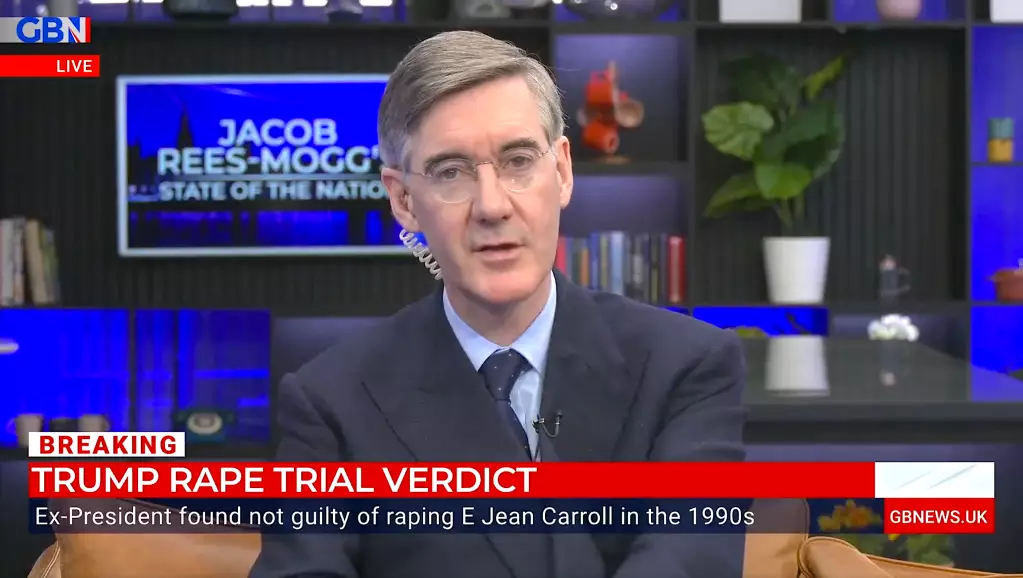In a significant legal ruling, GB News has triumphed over the UK’s media regulatory body, Ofcom, concerning allegations that its presenter, Jacob Rees-Mogg, violated broadcasting regulations. The High Court’s judgment has profound implications for how news and current affairs are defined and managed under UK broadcasting law. This landmark case arises from Ofcom’s earlier decision deeming two episodes of Rees-Mogg’s show, State Of The Nation, as breaches of rule 5.3, a provision that restricts politicians from acting as news presenters unless certain criteria are met.
At the core of Ofcom’s argument was its interpretation of rule 5.3 under the UK’s broadcasting code, which states, “No politician may be used as a newsreader, interviewer or reporter in any news programmes unless, exceptionally, it is editorially justified.” The regulatory body asserted that Rees-Mogg’s commentary about Donald Trump’s conviction for sexual assault, alongside a report on Valdo Calocane’s violent actions in Nottingham, led to a breach of this specific rule. They categorized these segments as news reporting rather than commentary, thereby justifying their intervention.
However, the court ruled differently, emphasizing the distinction between news programs and current affairs shows. The differentiation is crucial; while news programs adhere strictly to certain guidelines, current affairs shows, like State Of The Nation, are afforded more editorial freedoms. The judge, Mrs. Justice Collins Rice, asserted that GB News’s programming primarily fits the latter category, thereby exempting it from the rigid restrictions imposed on news programs.
This ruling not only clarifies the applicability of rule 5.3 but also suggests a need for broader reform in broadcasting regulations. The court’s decision has prompted Ofcom to reconsider the parameters surrounding the use of politicians in media presentations, acknowledging that the existing rule—written nearly two decades ago—does not reflect the current landscape of media where politicians frequently engage with audience and news content.
GB News CEO Angelos Frangopoulos championed the verdict as a major victory for free speech within the UK and declared that the ruling would resonate throughout the broadcasting industry. By defending its platform and the right of political figures to engage with news, GB News has positioned itself not only as a media entity but also as a voice for what it describes as “The People’s Channel.”
The case raises critical questions about how politicians and public figures can express opinions and participate in media discourse. As audiences increasingly turn to alternative news sources, platforms like GB News have begun reshaping public expectations regarding political commentary and news presentation. The court’s ruling could set a precedent, allowing similar networks to operate with greater freedom while possibly straining the traditional media’s regulatory hold.
Moreover, Ofcom’s intention to consider revising rule 5.3 indicates an acknowledgement of the evolving nature of news consumption. As viewers demand more authentic interactions with public figures, a potential reevaluation of guidelines could foster an environment wherein political leaders can contribute to meaningful discussions without fear of censorship or regulatory backlash.
GB News’s legal triumph over Ofcom signifies a critical moment for the UK’s broadcasting landscape. This ruling has not only underscored the importance of distinguishing between news programming and current affairs but also highlighted the need for regulatory frameworks to adapt to contemporary media environments. As GB News continues to expand its reach and audience base, the case serves as a reminder that the relationship between media regulation, political representation, and audience engagement is complex and continuously evolving. The outcome of this case could shape the future of how news, opinion, and politics intertwine in the public sphere.
